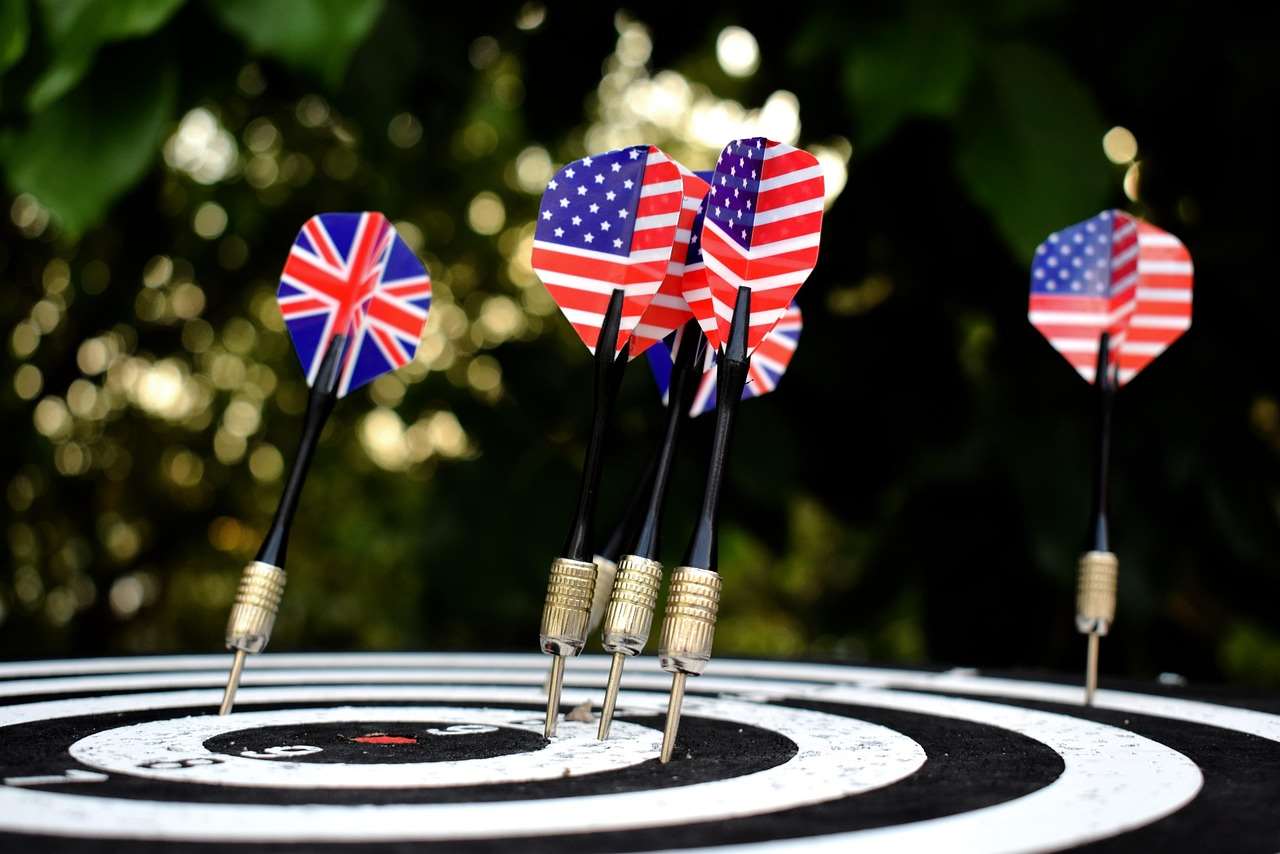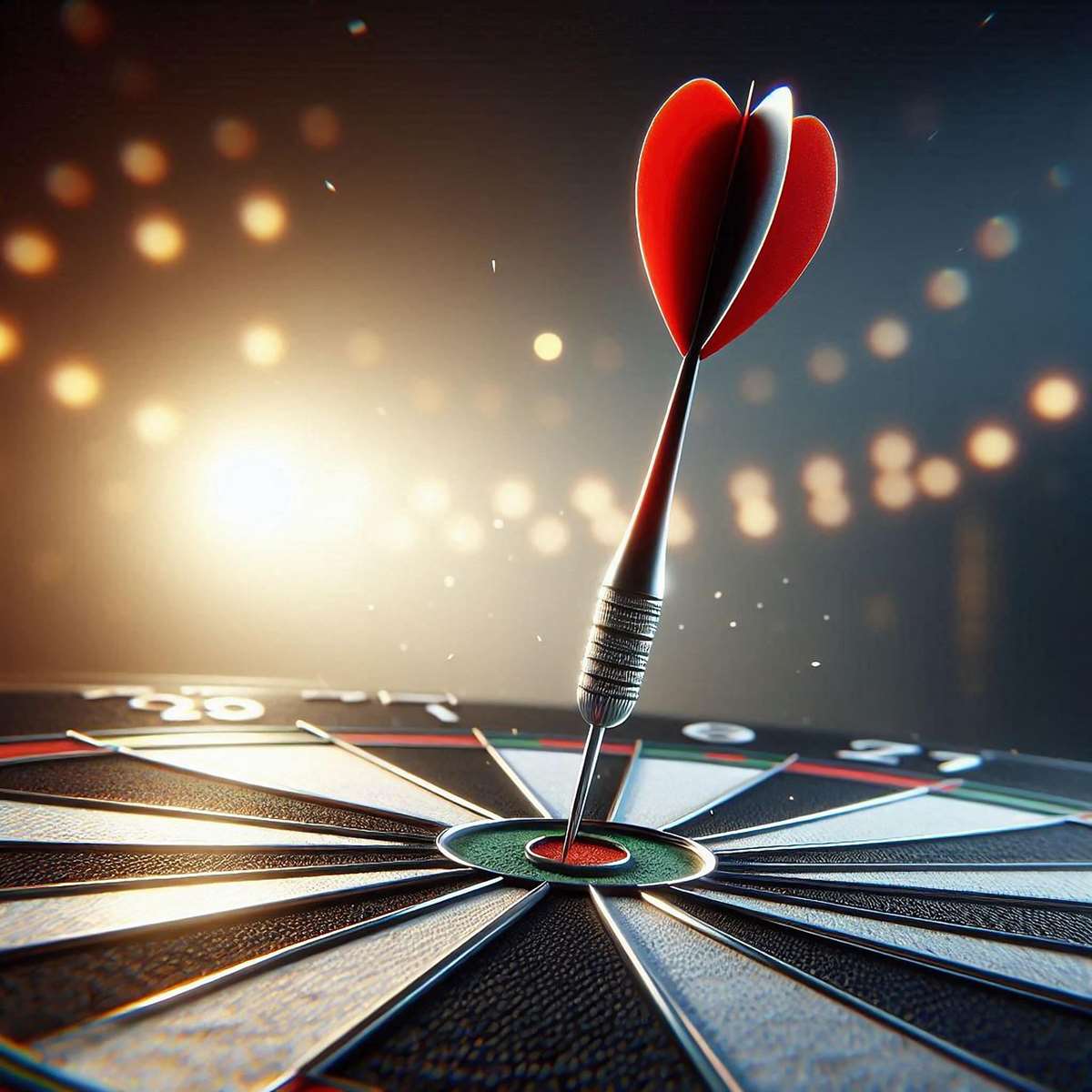Practicing good **darts etiquette for different abilities** is paramount for creating an inclusive and enjoyable environment for all players. This article explores the unwritten rules of darts, adapting them to players of varying skill levels to ensure fair play and mutual respect. We’ll cover everything from basic throwing line etiquette to how to behave when playing against a beginner, fostering a welcoming atmosphere in your local darts club or league.
⚠️ Still Using Pen & Paper (or a Chalkboard)?! ⚠️
Step into the future! The Dart Counter App handles all the scoring, suggests checkouts, and tracks your stats automatically. It's easier than you think!
Try the Smart Dart Counter App FREE!Ready for an upgrade? Click above!
Understanding Darts Etiquette For Different Abilities
The beauty of darts lies in its accessibility; anyone can pick up a dart and give it a throw. However, differences in skill levels can sometimes lead to uncomfortable situations. Understanding and adapting **darts etiquette for different abilities** is crucial for creating a welcoming and fair environment for everyone.
Fair play is at the heart of good sportsmanship. This doesn’t just mean following the official rules; it also means being considerate of your opponents’ capabilities and skill level. Consider the impact of your actions and how they might affect the other players. A little empathy goes a long way in fostering a positive atmosphere in any darts setting.
Remember that everyone starts somewhere. Even the most seasoned players were once beginners, struggling to hit the board. Approaching matches with an understanding and supportive attitude helps nurture new talent and strengthens the **darts culture and community guide** that binds enthusiasts together. Learn more about building a strong darts community.

Basic Darts Etiquette: Universal Rules for All Players
Regardless of skill level, there are some fundamental rules of etiquette that every darts player should adhere to:
- The Throwing Line: Always wait until the player throwing has completed their turn before approaching the oche (throwing line). Avoid distracting the thrower by moving around or making noise.
- Retrieving Darts: Do not retrieve your darts until the player throwing has finished their turn. This minimizes distractions and shows respect for their concentration.
- Keeping Score: Ensure accurate scoring. If you are the scorer, double-check your calculations and announce the score clearly. If you are a player, politely confirm the score if you are unsure. Accuracy is key to fair competition.
- Good Sportsmanship: Win or lose, maintain a positive attitude. Congratulate your opponent on good throws and avoid gloating or disparaging remarks. Promoting local darts depends on positive experiences!
- No Distractions: Refrain from talking loudly, using cell phones, or engaging in any behavior that might disrupt other players’ concentration. The focus should be on the game and respecting your opponent.
These basic rules form the foundation of **darts etiquette**. Mastering these is crucial before considering adjustments for different skill levels.
Adapting Etiquette When Playing Against Beginners
Playing against a beginner presents a unique opportunity to foster their love for the game and help them improve. Here’s how to adapt your etiquette to be more supportive:
- Offer Encouragement: A few words of encouragement can go a long way in boosting a beginner’s confidence. Offer compliments on good throws and avoid criticizing their technique.
- Provide Helpful Tips: If you see a beginner struggling with a particular aspect of their throw, offer gentle and constructive advice. Focus on one or two key areas for improvement, rather than overwhelming them with information.
- Adjust Your Expectations: Remember that beginners are still learning the game. Don’t expect them to play at the same level as experienced players. Be patient and understanding of their mistakes.
- Consider a Handicap: In casual games, consider offering a handicap to even the playing field. This could involve giving the beginner extra points or allowing them to throw from a closer distance. Organizing local darts league matches often involves handicapping systems.
- Avoid Overly Competitive Behavior: While it’s important to play to win, avoid displaying overly competitive behavior when playing against a beginner. Focus on having fun and creating a positive experience for both of you.
By adapting your approach, you can make the game more enjoyable for beginners and help them develop a passion for darts. This contributes to a stronger building local darts league club guide and community.

Navigating Skill Disparities in Competitive Play
Even in competitive leagues, skill differences exist. Here’s how to navigate these situations with grace and sportsmanship:
- Acknowledge the Difference: Recognize that skill disparities are a natural part of competition. Avoid making assumptions about your opponent’s abilities based on their appearance or reputation.
- Focus on Your Own Game: Instead of dwelling on the skill difference, concentrate on playing your best game. Focus on your own technique, strategy, and mental game.
- Respect Your Opponent: Regardless of their skill level, treat your opponent with respect. Avoid making condescending remarks or underestimating their abilities.
- Learn from the Experience: Every match, win or lose, is an opportunity to learn and improve. Analyze your performance, identify areas for growth, and seek feedback from other players.
- Maintain Humility: If you win against a less experienced player, be gracious in victory. Avoid gloating or boasting about your win. Remember that everyone has their off days.
Dealing with Unsportsmanlike Conduct
Unfortunately, not everyone adheres to good **darts etiquette**. Here’s how to handle situations involving unsportsmanlike conduct:
- Stay Calm: It’s important to remain calm and avoid escalating the situation. Take a deep breath and try to approach the issue rationally.
- Address the Issue Directly (But Respectfully): If you feel comfortable doing so, address the issue directly with the person involved. Explain why their behavior is inappropriate and how it is affecting the game. Be firm but respectful in your tone.
- Involve a Third Party: If you are unable to resolve the issue on your own, involve a third party, such as a league official or venue manager. They can mediate the situation and help find a resolution. Darts league management tips often include handling disputes effectively.
- Document the Incident: Keep a record of the incident, including the date, time, location, and a description of what happened. This information may be helpful if further action is required.
- Remove Yourself from the Situation: If the unsportsmanlike conduct continues or escalates, remove yourself from the situation. You may need to forfeit the match or leave the venue altogether. Your safety and well-being are paramount.
Remember that you are not responsible for other people’s behavior. Focus on maintaining your own integrity and sportsmanship, regardless of how others act.

Specific Scenarios and Etiquette Considerations
Let’s consider some specific scenarios and the appropriate etiquette responses:
* Slow Play: If a player is consistently taking an excessive amount of time between throws, politely ask them to speed up their pace.
* Chalking: Ensure that the chalker is paying attention and accurately recording the scores. If you notice an error, politely point it out.
* Dartboard Condition: If the dartboard is in poor condition (e.g., loose wires, worn-out segments), notify the venue manager or league official. A damaged dartboard can affect gameplay and safety.
* Equipment Issues: If a player’s darts are damaged or broken during a match, allow them a reasonable amount of time to repair or replace them.
* Spectator Interference: If spectators are interfering with the game, ask them to be quiet or move away from the playing area.
Being aware of these specific scenarios and having a plan for how to respond can help you navigate challenging situations with grace and professionalism.
The Importance of Inclusivity in Darts
Promoting inclusivity is essential for the long-term health and growth of the sport. Darts should be a welcoming and accessible activity for people of all ages, genders, backgrounds, and abilities. By embracing diversity and creating a supportive environment, we can attract new players and strengthen the darts community.
Consider these actions to foster inclusivity:
* **Create a Welcoming Atmosphere:** Ensure that your darts club or league is a welcoming space for everyone. Display inclusive signage and promote a culture of respect and acceptance. Setting up a darts club with an inclusive philosophy is crucial.
* **Offer Accessible Programs:** Develop programs that are tailored to different skill levels and abilities. This could include beginner clinics, handicap leagues, and adaptive equipment for players with disabilities.
* **Promote Diversity:** Actively seek out and recruit players from diverse backgrounds. Partner with community organizations and schools to reach underrepresented groups.
* **Challenge Discrimination:** Speak out against any form of discrimination or prejudice in the darts community. Create a zero-tolerance policy for harassment and ensure that all players are treated with respect.

Darts Etiquette for Different Abilities: A Summary
In conclusion, practicing good **darts etiquette for different abilities** involves being mindful of your own behavior and how it affects others. By adapting your approach to accommodate different skill levels, handling unsportsmanlike conduct effectively, and promoting inclusivity, you can help create a positive and enjoyable experience for all players. Remember that the goal is to have fun, improve your skills, and build lasting relationships within the darts community.
Final Thoughts: Continuing to Grow the Darts Community
The continued growth and success of darts depend on creating a welcoming and inclusive environment for all players. By embracing good etiquette and promoting sportsmanship, we can ensure that darts remains a fun and rewarding activity for generations to come. Let’s all commit to upholding the highest standards of conduct and creating a darts community that we can be proud of.
Take the time to learn more about how to start a darts league and contribute to the growth of the sport. Every effort counts!

Remember, **darts etiquette** isn’t just about following rules; it’s about showing respect and consideration for others. This fosters a positive atmosphere and encourages everyone to enjoy the game to the fullest. From the casual player to the seasoned pro, we all have a role to play in upholding these values. By being mindful of **darts etiquette for different abilities**, we contribute to a vibrant and inclusive darts community.
Ready to put your newfound knowledge into practice? Find your local darts club and get involved! Good luck and happy throwing!
Hi, I’m Dieter, and I created Dartcounter (Dartcounterapp.com). My motivation wasn’t being a darts expert – quite the opposite! When I first started playing, I loved the game but found keeping accurate scores and tracking stats difficult and distracting.
I figured I couldn’t be the only one struggling with this. So, I decided to build a solution: an easy-to-use application that everyone, no matter their experience level, could use to manage scoring effortlessly.
My goal for Dartcounter was simple: let the app handle the numbers – the scoring, the averages, the stats, even checkout suggestions – so players could focus purely on their throw and enjoying the game. It began as a way to solve my own beginner’s problem, and I’m thrilled it has grown into a helpful tool for the wider darts community.